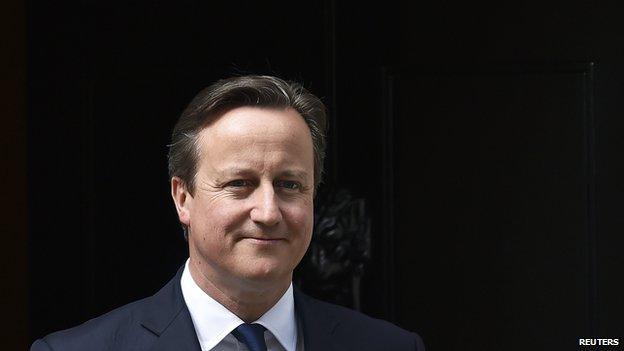EU referendum: Why Cameron is giving ground
- Published

When a government starts giving ground it is worth paying attention.
The new political season has hardly begun and already Downing Street has made two quick concessions. It has agreed to the Electoral Commission's recommendation that voters should be asked if they want to remain in or leave the EU because a Yes/No question would unfairly favour the Yes campaign.
And now Number Ten has significantly rowed back over its plans to allow ministers to campaign officially for EU membership in the last four weeks of the referendum.
To some, this amounts to a huge fillip for the EU "out" campaign. No longer will the "in" campaign have the advantage of asking people to vote positively for yes.
And no longer will ministers be free - in theory - to use their full offices of state to campaign to stay in the EU. As one pro-EU Conservative MP put it to me: "This Number 10 "Neville Chamberlain approach" to Tory anti-EU hardliners will in the end encourage them, not pacify them. Most of us mainstream Tories are fed up with holding our tongue while the headbangers run riot."
Yet, this is to mistake the government's intention. Ministers accept that getting rid of the Yes/No vote and partially reintroducing so-called "purdah" might make it marginally harder for David Cameron to win a referendum.
But they think the risk is worth it if it makes it harder for Tory eurosceptics to claim - amid the wreckage of defeat - that the rules were rigged against them.
The great fear among ministers is that they win the referendum by a whisker and then struggle to reunite a bruised, divided Tory party. They don't want to give any pretext for defeated eurosceptics to cry foul and claim they were robbed by an unlevel playing field. Hence Downing Street conceding on process; it is looking to win the war and not just the battle.